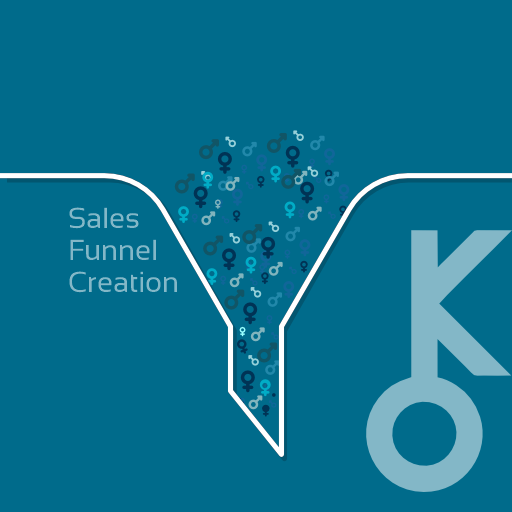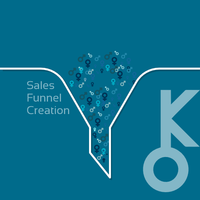Measuring Sales Funnel Performance: Sales Funnel Metrics

Measuring the performance of your sales funnel is crucial for understanding the effectiveness of your marketing and sales efforts. By tracking and analyzing key metrics, you can identify areas for improvement, optimize conversions, and ultimately drive revenue growth.
Why Measure Sales Funnel Performance?
Measuring sales funnel performance helps businesses gain important insights into customer behavior and their journey through the purchasing process. This data allows organizations to refine their marketing strategies, improve lead generation efforts, nurture prospects more effectively, and close deals at a higher rate.
Key Sales Funnel Metrics to Track:
Conversion Rate: The conversion rate measures the percentage of leads that move from one stage of your sales funnel to the next. It provides an overall view of how well your funnel is performing.
Cost per Lead (CPL): The CPL metric calculates the average cost incurred in acquiring a single lead. This metric enables businesses to evaluate their marketing spend efficiency.
Lead Quality: Determining lead quality involves assessing various factors such as lead source, demographics, past interactions with your brand, etc., to determine if they are likely to convert into paying customers.
Average Deal Size: Knowing the average deal size provides insight into how much revenue each closed deal generates on average.
Sales Velocity: Sales velocity measures how quickly leads move through your pipeline from initial contact to closing a deal. It determines responsiveness and identifies potential bottlenecks within the process that need optimization.
Churn Rate: Churn rate represents the percentage of customers who stop using or purchasing from your business over a given period of time due to cancellation or attrition—measured against total customers—a high churn rate raises concerns about customer retention efforts.
Time in Each Stage: Analyzing how long prospects spend at each stage helps identify bottlenecks or areas where leads tend to drop off. By addressing these issues, you can optimize the sales funnel for better flow and quicker conversions.
Customer Lifetime Value (CLTV): This metric calculates the total revenue a customer is expected to generate over their entire relationship with your business. CLTV helps in determining effective customer acquisition costs and facilitates retention efforts.
Return on Investment (ROI): ROI measures the profitability of your marketing and sales investments. Calculating the ratio of revenue gained to expenses incurred allows organizations to evaluate the effectiveness of their strategies and make data-driven decisions.
Tools for Measuring Sales Funnel Performance:
Several tools are available that simplify tracking and analysis of sales funnel metrics:
Customer Relationship Management (CRM) software: CRMs enable businesses to track lead details, measure sales activities, analyze pipeline performance, and identify areas for optimization.
Website Analytics Tools: These tools provide valuable information on website traffic, visitor behavior, conversion rates at different stages of the funnel, bounce rates, etc.
Marketing Automation Platforms: These platforms automate key marketing tasks such as lead nurturing, email campaigns, and personalized messaging while providing essential metrics for measuring campaign success.
Conclusion:
Measuring sales funnel performance using relevant metrics provides invaluable insights into how well your marketing and sales processes are performing. Regularly analyzing these metrics enables businesses to optimize conversions, improve lead quality, enhance customer experience throughout the buyer's journey, increase revenue growth efficiency and exceed business objectives overall. Utilizing appropriate tools further simplifies this measurement process by centralizing data collection while offering powerful analytics capabilities for data-driven decision-making purposes.
Sponsored
Sponsored
Sponsored
Explore More:

The Impact of AI and Machine Learning
As technology continues to advance at a rapid pace, businesses are constantly looking...

Future of Sales Funnels
The future of sales funnels is an exciting and promising concept for businesses...

Lessons Learned from Failed Funnels
In the realm of sales funnel creation, case studies serve as valuable resources...

Successful Sales Funnel Examples
In sales funnel creation, case studies play a crucial role in demonstrating the...

Case Studies in Sales Funnel Creation
In the world of sales and marketing, case studies play a crucial role...

Sales Funnel Recovery Strategies
Sales funnels are a critical component of any successful sales and marketing strategy....

Improving Funnel Efficiency
A sales funnel is a crucial component of any business's marketing strategy. It...

Identifying Funnel Leaks
A sales funnel is a systematic approach to guiding potential customers through a...

Sales Funnel Troubleshooting
Sales funnel troubleshooting is the process of identifying and resolving issues or bottlenecks...

Sales Funnel Tools and Software: Landing Page Builders
Sales funnels are essential in driving conversions and increasing revenue for businesses. To...

Sales Funnel Tools and Software: Email Marketing Tools
Sales funnel tools and software refer to the various technologies and platforms available...

Sales Funnel Tools and Software: CRM Software
Sales funnel tools are software programs or applications designed to help businesses track...

Sales Funnel Tools and Software
A sales funnel is a framework used by businesses to guide potential customers...

Measuring Sales Funnel Performance: Analytics and Reporting
Measuring sales funnel performance analytics and reporting is a crucial aspect of any...

Measuring Sales Funnel Performance: Key Performance Indicators (KPIs)
Measuring the performance of a sales funnel is crucial for any business aiming...

Measuring Sales Funnel Performance
Sales funnel performance measurement is a crucial aspect of any business operation. It...